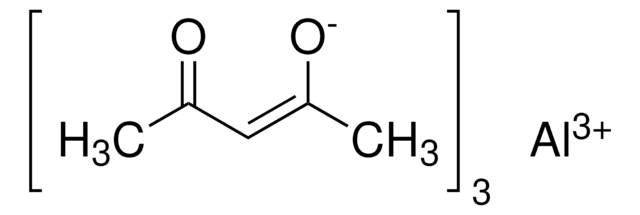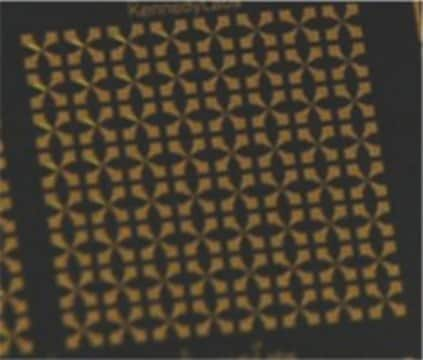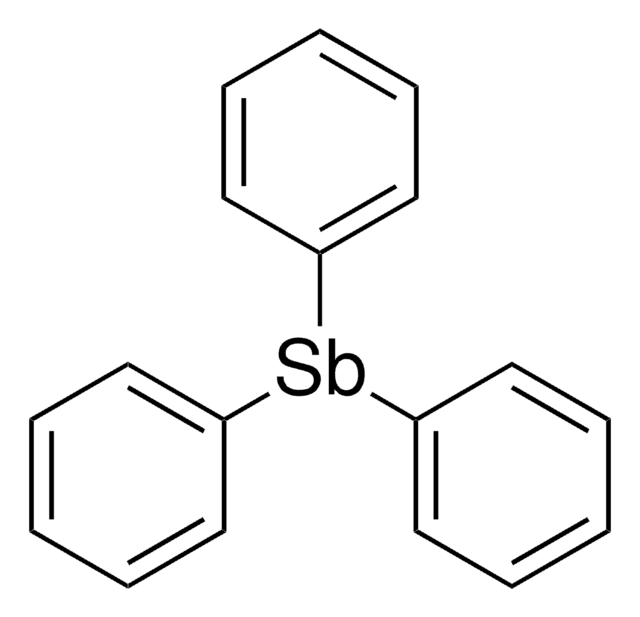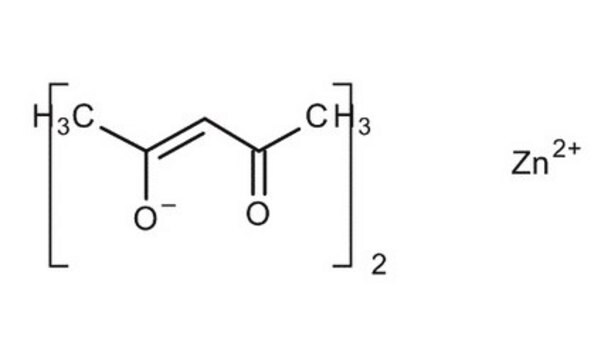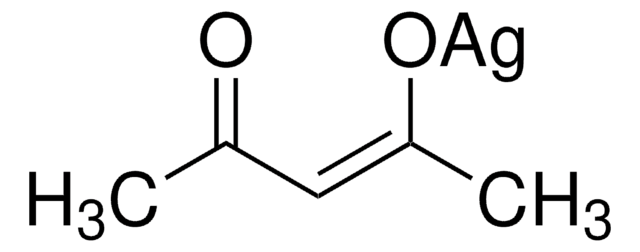I3300
Indium(III) acetylacetonate
≥99.99% trace metals basis
Synonym(s):
2,4-Pentanedione indium(III) derivative, In(acac)3, Indium(III) 2,4-pentanedionate
About This Item
Recommended Products
Quality Level
Assay
≥99.99% trace metals basis
form
solid
reaction suitability
core: indium
reagent type: catalyst
mp
187-189 °C (lit.)
SMILES string
CC(=O)\C=C(\C)O[In](O\C(C)=C/C(C)=O)O\C(C)=C/C(C)=O
InChI
1S/3C5H8O2.In/c3*1-4(6)3-5(2)7;/h3*3,6H,1-2H3;/q;;;+3/p-3/b3*4-3-;
InChI key
SKWCWFYBFZIXHE-LNTINUHCSA-K
General description
Application
Signal Word
Warning
Hazard Statements
Precautionary Statements
Hazard Classifications
Acute Tox. 4 Dermal - Acute Tox. 4 Inhalation - Acute Tox. 4 Oral - Carc. 2 - Eye Irrit. 2 - Skin Irrit. 2 - STOT SE 3
Target Organs
Respiratory system
Storage Class Code
11 - Combustible Solids
WGK
WGK 3
Personal Protective Equipment
Choose from one of the most recent versions:
Already Own This Product?
Find documentation for the products that you have recently purchased in the Document Library.
Customers Also Viewed
Articles
Solvothermal synthesis of nanoparticles: applications from nanocircuits and nano-optical circuits to nanomagnetics and biotech.
Continuous efficiency improvements in photovoltaic devices result from material advancements and manufacturing innovation.
Thin film photovoltaic devices have become increasingly important in efficiently harnessing solar energy to meet consumer demand.
Nanomaterials are considered a route to the innovations required for large-scale implementation of renewable energy technologies in society to make our life sustainable.
Our team of scientists has experience in all areas of research including Life Science, Material Science, Chemical Synthesis, Chromatography, Analytical and many others.
Contact Technical Service




